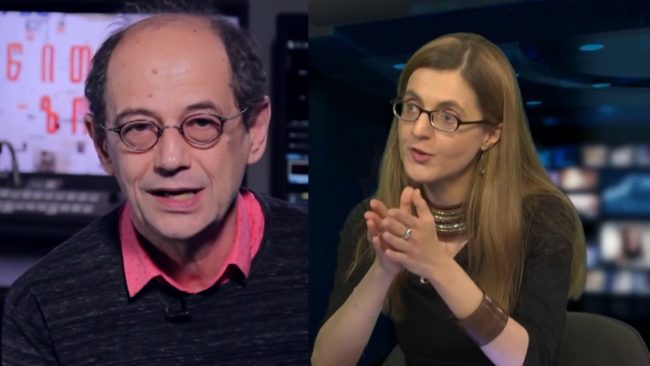

 Georgia’s Public Broadcaster (GPB) has announced that they will cease broadcasting joint programmes with Radio Free Europe/Radio Liberty (RFE/RL). In an interview local media outlet Netgazeti, the head of RFE/RL in Georgia Davit Kakabadze said that TV programmes Tsiteli Zona (Red Zone) and InterVIEW will no longer be aired on GPB.
Georgia’s Public Broadcaster (GPB) has announced that they will cease broadcasting joint programmes with Radio Free Europe/Radio Liberty (RFE/RL). In an interview local media outlet Netgazeti, the head of RFE/RL in Georgia Davit Kakabadze said that TV programmes Tsiteli Zona (Red Zone) and InterVIEW will no longer be aired on GPB.
‘According to our contract we should be given a month’s notice. We have been officially informed. So everything is OK in legal terms’, Kakabadze said.
GPB announced earlier in February that they were to shut down all of their political talk-shows, after the board elected a new director to the channel.
Media rights organisations have claimed that new director Vasil Maglaperidze ‘is not politically neutral’, as in 2012 he served as deputy director of Metskhre Arkhi, a TV channel belonging to former Prime Minister Bidzina Ivanishvili.
After protests from media rights organisations and students, GPB said it would only shut down the shows ‘temporarily’, from July 2017, including popular political debate show Realuri Sivrtse, which examines a number of sensitive social and political issues from many angles. The cancelled shows would then have the opportunity to participate in the competition for new shows airing from the next season.
Realuri Sivrtse is still being considered for renewal as part of the competition, however, the joint shows with RFE/RL ‘did not meet the criteria of the competition’, as they were of ‘another genre’.
InterVIEW, a joint weekly TV programme consisting of in-depth, 30-minute interviews asking hard-hitting questions to politicians, newsmakers, academics, and artists, has been running since December 2015, while Tsiteli Zona has been on air since 2007.
InterVIEW’s host Salome Asatiani interviewed Georgia’s former PM and founder of Georgia’s ruling part, billionaire Bidzina Ivanishvili in 2016. According to RFE/RL, Asatiani’s questions, and the confrontational, often hostile reaction from her guest, caused the episode to reach a wide audience (with over 150,000 online views alone), and generated a great deal of controversy in the country.
GPB has not made any official statements about the cancellations so far.
According to Freedom House’s Freedom of the Press Ranking, Georgia is a ‘partly free’ in terms of media freedom scoring 50/100. Another international media rights organisations Reporters Without Borders put Georgia in 64th out of 180 in its Press Freedom Index.








